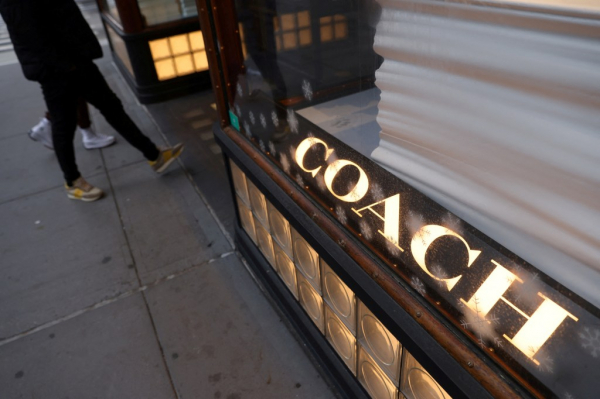
The Federal Trade Commission made a bold move on Monday, announcing its intention to block Tapestry, the parent company of Coach, from acquiring Capri, the owner of Michael Kors, in an $8.5 billion deal. Citing concerns over competition elimination, the FTC's action aligns with recent calls from US lawmakers for heightened scrutiny of major mergers, aimed at safeguarding consumer interests and preventing price hikes.
This legal clash emerges against the backdrop of revamped merger guidelines unveiled by US antitrust enforcers in December, signaling a renewed commitment to fostering fair and competitive markets. In a stern statement, the FTC emphasized the potential adverse impact on consumers, warning of lost benefits stemming from the elimination of head-to-head competition between Tapestry and Capri. The rivalry encompasses vital aspects such as pricing, innovation, design, and marketing strategies.
Tapestry's bid to acquire Capri, initiated in August, aimed to forge a formidable US fashion powerhouse capable of rivaling prominent European giants like LVMH, the parent company of Louis Vuitton. However, the FTC's move underscores a regulatory roadblock, as it seeks further scrutiny of the proposed merger, despite Tapestry's insistence that the deal is pro-competitive and consumer-friendly.
Capri Holdings vehemently opposes the FTC's stance, emphasizing the market dynamics overlooked by the government agency. Asserting the merger's compatibility with healthy competition, Tapestry echoes these sentiments, stressing its commitment to benefiting consumers and enhancing market diversity.
Despite securing regulatory approvals from the European Union and Japan earlier in April, allowing the consolidation of renowned luxury brands like Kate Spade and Jimmy Choo, Tapestry and Capri now face a pivotal legal showdown in the US. The outcome of this clash will not only shape the landscape of the luxury fashion industry but also serve as a litmus test for antitrust enforcement in an era marked by growing consolidation pressures.
In conclusion, the legal battle between the Federal Trade Commission and Tapestry over its proposed acquisition of Capri represents a critical juncture in the ongoing debate surrounding antitrust enforcement and market competition. As regulatory authorities increasingly scrutinize major mergers for potential consumer harm, the outcome of this clash will reverberate throughout the luxury fashion industry and beyond. Whether it's fostering fair competition or safeguarding consumer interests, the resolution of this dispute will shape the trajectory of future mergers and acquisitions, setting a precedent for antitrust enforcement in an evolving marketplace. As stakeholders await the verdict, one thing remains clear: the outcome will have far-reaching implications for the competitive landscape and the welfare of consumers.